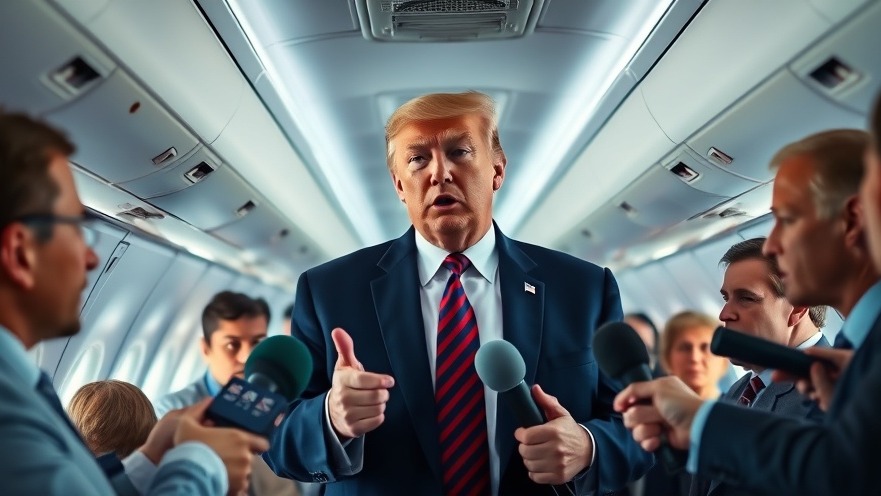
A New Era of Peace in the Middle East?
Former President Donald Trump recently declared a historic day during a press Q&A aboard Air Force One, celebrating a newly announced peace deal within the Middle East. Trump pointed to the homecoming of supposed hostages as emblematic of progress in a region historically marked by conflict and tension. The mood aboard the flight reflected an optimistic outlook as Trump engaged with reporters, juxtaposing his reception abroad with contrasting views back home.
In FULL VIDEO: Trump Celebrates Gaza Peace Deal, Takes Questions From Reporters On Air Force One, the discussion dives into significant international negotiations and their domestic ramifications, inviting broader analysis.
The Power of Perception: International vs. Domestic Reception
Trump's observations about his greater acceptance in Israel than in New York highlight a significant gap between international perceptions of U.S. leadership and domestic public sentiment. With recent rallies boasting attendance figures that break conventional norms for presidential engagement, Trump underscored his enduring rapport with some voter segments, irrespective of the headlines generated at home.
The Stakes of Middle East Peace
As discussions progress, questions loom over the longevity of any agreement. Can a peace deal endure without established international support? Trump reflected on the complexity of the Middle Eastern geopolitical landscape, acknowledging that the fraught history between its peoples makes any agreement pressurizing. Still, optimism remains prevalent, with Trump asserting faith in the leaders of wealthier Arab nations to help broker this delicate peace.
Addressing Domestic Challenges Amid Foreign Celebrations
Starkly contrasting the celebratory tone regarding the Middle East peace deal, Trump also took the opportunity during the press engagement to address pressing domestic issues. From large-scale crime in Chicago to Republican criticisms of Democratic policies, he emphasized the need for stronger governance and decisive political action. Trump suggested that robust leadership models from abroad could serve as examples for American governors struggling against rising crime rates.
Cultural Context: Understanding the Middle East
Understanding the complex narrative behind U.S. involvement in Middle Eastern affairs is pivotal to grasping the gravity of Trump's statements. The historical and cultural significance of the region, intertwined with centuries of conflict, heightens the potential fragility of any agreements made. Trump’s invocation of timing, rates, and international cooperation invites scrutiny regarding the effectiveness of such negotiations.
Future Predictions: What Lies Ahead?
Looking ahead, many wonder how sustainable Trump's proposals for rebuilding Gaza and fostering greater cooperation among nations can be. His assertion that unprecedented collaborations among powerful states could reshape the region's future may resonate, but skeptics question the feasibility of such ambitions. How will future administrations and international bodies respond to these developments?
The Implications of Insurrection Act Discussions
The discussions of the Insurrection Act during his press tour reflect the volatile political landscape that America currently faces. While aiming to address crime in American cities or international chaos, Trump’s statements raise concerns about potential overreach of executive powers and the necessity of checks and balances in governance. As the administration navigates complex political waters, the implications of such discussions ripple across the national stage.
Conclusion: A Call for Reflection and Action
The global discourse surrounding U.S. foreign policy, especially concerning the Middle East, is more relevant than ever. Citizens from diverse backgrounds must engage with these conversations critically. As Trump navigates these critical discussions of peace, domestic challenges remain a pressing concern. It's essential for voters to stay informed and actively participate in shaping the future of national and international policy.
 Add Element
Add Element  Add Row
Add Row 



Write A Comment